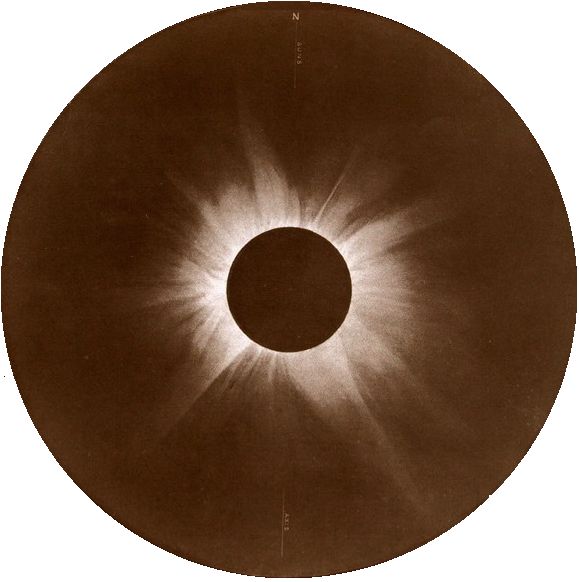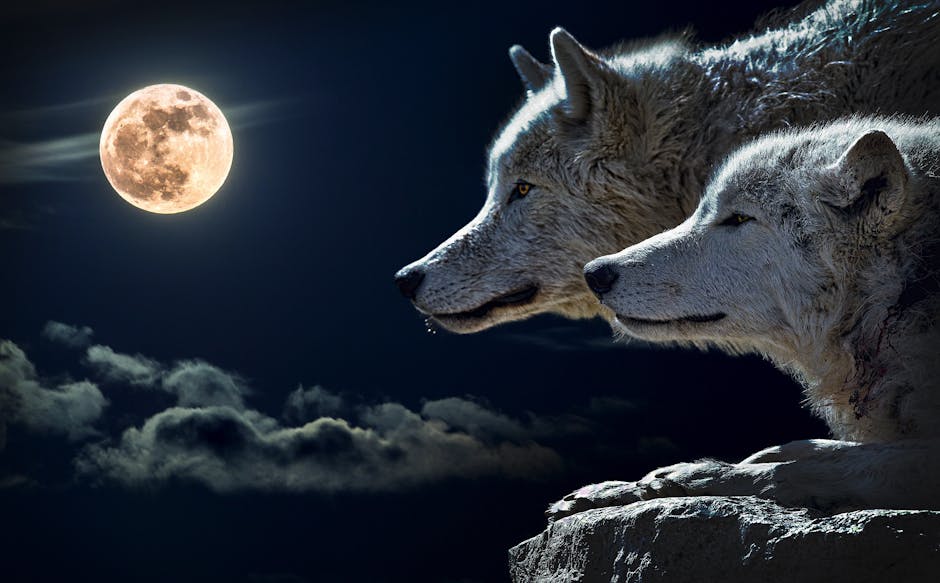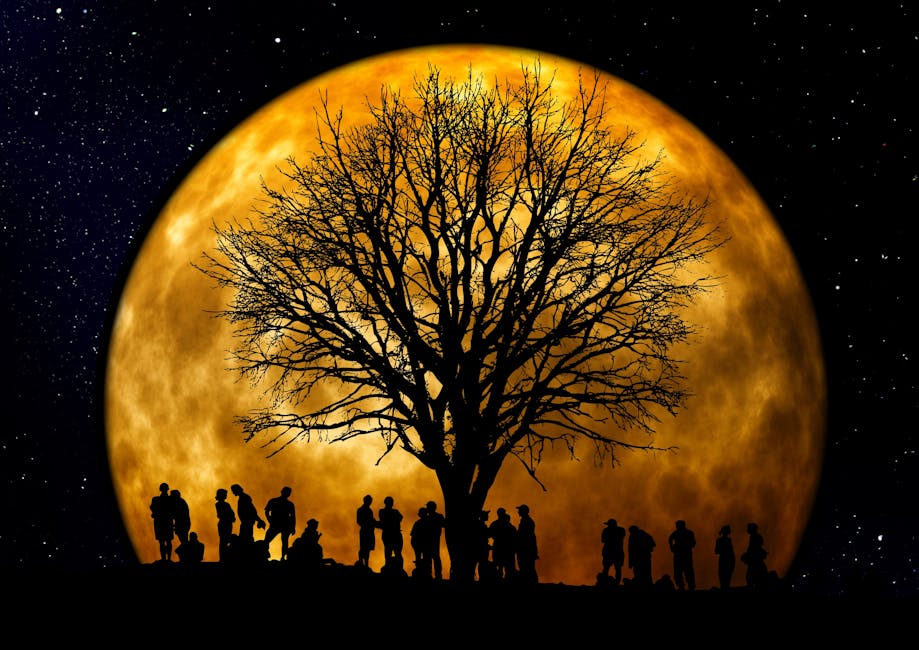The Full Moon and Solar Eclipse, folklore, magic, and insanity.
A solar eclipse happens when the moon ends up perfectly between the Earth and Sun. A solar eclipse occurs when the moon is in it’s new moon phase, and it ends up lining up just so. The result is the moon casting its shadow on us, and for a few moments it seems as though the sun disappears for a bit.
It’s rare to see an actual, full on solar eclipse though, because the shadow is so focused on one spot. So when one happens to fall on your community it’s impressive…but for ancient cultures with less scientific information on astronomy it could very well be heralding in a cataclysmic event meant to rock the ages!
The Solar Eclipse in Folklore
The Gods are Stealing the Sun!

The next solar eclipse is going to be on Monday, August 21st, 2017 at about 3 in the afternoon UTC time. And what, for us, will be a stunning visual spectacle was something that used to be a terrifying and mystical event. Very rarely did ancient cultures take the sun’s apparent disappearance as being a good thing.
Check out this page for a great countdown to the 2017 solar eclipse!
The Greeks (and then later the Romans) saw an eclipse as a sign the gods were angry
In Norse mythology, the appearance of a solar eclipse was blamed on a couple of wolves that were playing with the sun and moon. Sköll was the wolf that chased the sun, and the solar eclipse was a sign that he and his brother Hati (who chased the moon) had succeeded in catching the chariots and were ushering in the Ragnarök. (Not just the new Thor movie, but the Norse version of the end of the world.)
In Vietnam, the prevailing thought on the eclipse was that a giant demon frog had swallowed the sun mistaking it for a firefly. In response the people took to the streets, making as much noise as possible, banging pots and pans and the like, to scare the beast off. It must have been effective, since the sun eventually came back out for them!
These aren’t the only two that thought the sun had been eaten, not surprisingly Ancient China thought that when the solar eclipse occurred it was because an ancient dragon was having it as a light lunch.
The Solar Eclipse in Pop Culture
Someday, the filmography and literature humanity loves now will be considered the folklore to the future humans looking back on them. So it’s worth noting (for a historical perspective…and just because books and movies are fun)

A Connecticut Yankee in King Arthur’s Court (book/movie)
This classic “King Arthur” story, written by Mark Twain, features a young boy getting transported through time and into Camelot. When he’s accused of being a Witch and almost burnt for it, he uses his knowledge of the impending Solar Eclipse to prove himself a powerful magician worthy of being Merlin’s apprentice: and not dead.
Ladyhawke (movie)
Two star crossed lovers struggle to reunite in this classic 80s fantasy flick. During the day, she’s a hawk, he’s a man. During the night, she’s a woman, and he’s a wolf. The plot escalates while they struggle to defeat the curse put upon them by a jealous rival that comes to a head during a solar eclipse when both the sun and moon are out together.
Little Shop of Horrors (musical)
A total eclipse of the sun drops the strange and mysterious (definitely alien) plant that Seymour picks up and names the Audrey II. The “total eclipse of the sun” is the catalyst of the entire, silly, and amazing musical.
The Solar Eclipse Viewing Safety
Even though the moon will be in front of the sun, it’s very important to avoid staring at the solar eclipse without any protection from the sun. The sun can do permanent damage to your eyes, even with the assistance of sunglasses.
Be sure to follow a few safety precautions, such as making a pinhole viewer, or using specially designed solar filter sunglasses.
The Full Moon in Folklore

Full moons happen when the sun is pretty much in the opposite position it is during a solar eclipse. The moon is on the far side of the Earth (compared to the sun) reflecting the sunlight back towards us. There are still thousands of folk stories about the moon, and dozens about when it’s full. But, since the full moon phase occurs on a regular basis and nothing all that terrible happens every month, none of the tales are as apocalyptic as the Ragnarök.
Werewolves and the Full Moon
Loup Garou is basically a French werewolf. These are the kind that can change by his/her own will. They’re not governed by the cycles of the moon as the others are, and are able to maintain their human intelligence and free will during and after their transformations.
Classic werewolves, otherwise known as lycanthropes, are some of the oldest stories in history. Their origins go back so far that historians couldn’t really decide where the stories begin.
Madness in the Full Moonlight
This is a legend so profound that it’s still rather prolific today. The idea that a full moon causes madness goes so far back that the word “lunacy” comes straight from the Greek goddess Luna, who was in charge of the moon.
But this legend has little to no basis in fact. The most logical explanation for why the full moon seems so much more troublesome seems to be more on the amount of light. Full moons reflect quite a bit more light than the other phases, so it stands to reason that people would be more active (and thus get into more trouble) during a full moon than a new moon.
Read more: Check out our post on the full moon and behavior!
Magic and Full Moons

Many people who practice modern magic, like tarot, scrying, and divination, believe that the full moon is the best time to practice their arts and get the best results. Likely, quite a lot of these rituals happen outside and the full moon has the most light to see by, so it stands to reason that they would be the most effective under the light of a full moon.
Full Moons and Pop Culture
So much of the folklore that surrounds the full moon is still relevant in pop culture today. Werewolves are in dozens of stories, from the Twilight Saga, and the Underworld film franchise. While the werewolves in thoseshares more in common with the Loup Garou than traditional werewolves, it’s still worth mentioning. Those sorts of werewolves wouldn’t exist without the moon.
There really is too many references to full moons in pop culture that to try to assemble for you. Just take a look at the world around you and look for it. You’ll find it everywhere. The sun and the moon have been the focus of our attention for so long through the ages that we’re never going to be done talking about them.




